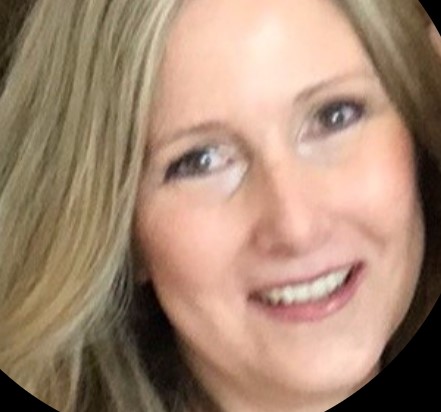
Remote Learning Provides an Opportunity to Rethink Assessment (and Learning)
COVID-19 School Closures Provide an Opportunity to Think About and Assess Learning Differently
Jal Mehta, author of In Search of Deeper Learning, was recently interviewed by Rick Hess about how to support deeper learning during the COVID-19 shutdown and remote learning. In addition to being a leading researcher on how schools can support more meaningful student learning, he, like many others these days, is trying to balance his work and learning opportunities for his own young children. Mehta offered the following response when asked how to foster deeper learning during these unprecedented circumstances:
From a deeper-learning perspective, the worst thing to do would be to just take the same kind of worksheets students do in school and move them online. Intrinsic motivation matters more in the online space, and thus there is more of a premium on finding tasks which engage students’ interests and curiosities. Meanwhile, students have significantly more open time, which is well-suited to project-based learning or challenge-based learning, where students work in a more focused way to produce a product or explore an interesting question. For older kids, COVID-19 can be a lens through which you can learn math, politics, public health, human behavior, and much more.
Prioritized Knowledge and Skills
How should we make this shift? First, leaders and educators must identify the highest leverage and most essential learning targets that will serve as the focus of learning and assessment. Many have been arguing for this approach for years. In fact, the developers of the Common Core State Standards (CCSS) started with the oft-repeated aim of “fewer, clearer, and higher.” Local educators and leaders, with state support, must do the hard work of prioritizing the standards and essential understandings that will serve as critical foundations for ongoing learning in the specific domain. This prioritization has to be a whole district effort because it is critical that these essential understandings cohere across grade levels. Achieve the Core offers a thoughtful lens by identifying the major work and supporting work for each grade level in math and literacy.
Focusing remote learning on these big ideas of the discipline will help engage students in their current learning and should help them come back to school ready to continue progressing in their learning.
Thinking Differently About Learning
While the disciplinary learning and the learning of key cross-cutting skills must be prioritized, we cannot lose sight of the motivation necessary for students to do a great deal of this learning on their own. Therefore, educators need to allow and encourage flexibility in what and how students learn and how they demonstrate this learning.
We also need to recognize that we are shifting from fairly social learning environments to much more individualized contexts. In school settings, students often work in groups with other students or participate in whole group discussions led by a teacher. It is more challenging to maintain the level of social interaction in online environments, and early indications suggest that students—particularly older students—are expected to do more on their own. This observation is true in both synchronous and asynchronous settings. Teachers need to both figure out ways to promote more social interactions—we know this task isn’t easy—and to recognize the need to support more individualized learning. Such approaches will look different in remote compared to in-school settings, but that doesn’t mean it can’t happen.
An Opportunity for Assessments of Deeper Learning
We can seize this opportunity to create assessment experiences that require students to think deeply and to demonstrate that deep thinking. Whether as part of independent student projects or more formal assessment events, educators should be relying on prompts and problems that ask students to think strategically, use facts to solve problems, show relationships, analyze situations, and require them to present their work in ways appropriate for the online context.
One might ask why we need a crisis to engage in this assessment shift. We don’t! In fact, there have been many rich examples of assessment reforms over the past 30 years. New Hampshire’s Performance Assessment of Competency Education innovative assessment system is a recent and powerful example of shifting to richer assessment experiences. Unfortunately, we have struggled to scale and sustain such reforms. Perhaps, we can use this opportunity to diffuse these deeper learning instruction and assessment reforms.
We can also use this opportunity to take risks under these conditions to think about and assess learning differently. In typical assessment conditions, we expect students to complete the same assignment under the same conditions under the same or similar timeframe, but in remote contexts, we likely need to relax many of our typical assessment expectations. If we are asking students to engage in deeper and more individualized learning opportunities during this unprecedented time, we need to relax some rules generally applied to school-based assessments. At this point, the main goal of assessment should be to support and provide some documentation of the deeper learning outcomes.
What About Grading?
Some might wonder how to go about assigning grades when allowing more assessment flexibility. Lorrie Shepard has written persuasively about the demotivating effects of typical grading practices. Such negative effects could be exacerbated in these turbulent times as teachers and students are getting their remote feet under themselves. Therefore, we strongly recommend shifting to pass/fail grading, particularly for second-semester courses, to acknowledge the uncertainty in clearly evaluating student work and take some pressure off students and teachers.
We are not blind to the ways in which grades have been used to extrinsically incentivize students’ efforts. The grades, too often, are the reward. In a pass/fail grading system, teachers and students will have to work together to create environments where learning is the reward. Looking at it from a glass-half-full perspective, it could be a time to shift to a learning and assessment system that capitalizes on students’ ability to reflect on their own learning progression and celebrate the risks taken, lessons learned, and milestones reached.
It’s Not Easy
We acknowledge the challenges in carrying out high-quality formative assessment practices in an online, remote learning context. Capitalizing on the many informal interactions that occur in person will be tough, but not impossible, to recreate over Zoom or other platforms. Therefore, teachers will need to find other ways to regularly determine where students are in their learning and provide frequent feedback such as through shared documents, using the “chat function” as exit tickets, and/or other means.
It’s become clear, after about a month of remote learning, that instruction and learning will be different. We can’t mirror the practices we used while we were physically together, but we can use this opportunity to try some different learning and assessment experiences that could be brought back into physical school buildings when the time comes to return.
Finally, we acknowledge that many are just struggling to establish the basic conditions of learning and teaching. We know our suggestions could take time to implement, but we urge educators to take some initial steps in this direction as what started as a short-term strategy evolves into a longer “new normal.” The most important thing is to keep our focus on supporting deeper learning and not expecting the assessments to meet stringent technical requirements.
Mary Ann Snider is currently serving as the Academic Dean of St. Mary’s Academy- Bay View; an all-girls school for students in grades PK-12. Prior to this role, she was the Deputy Commissioner for the RI Department of Education. Her focus was and continues to be the intersection of assessment and instruction for the benefit of all students. She was instrumental in creating the first multi-state assessment consortium – NECAP – and continued that work as a state lead for the PARCC assessments.

